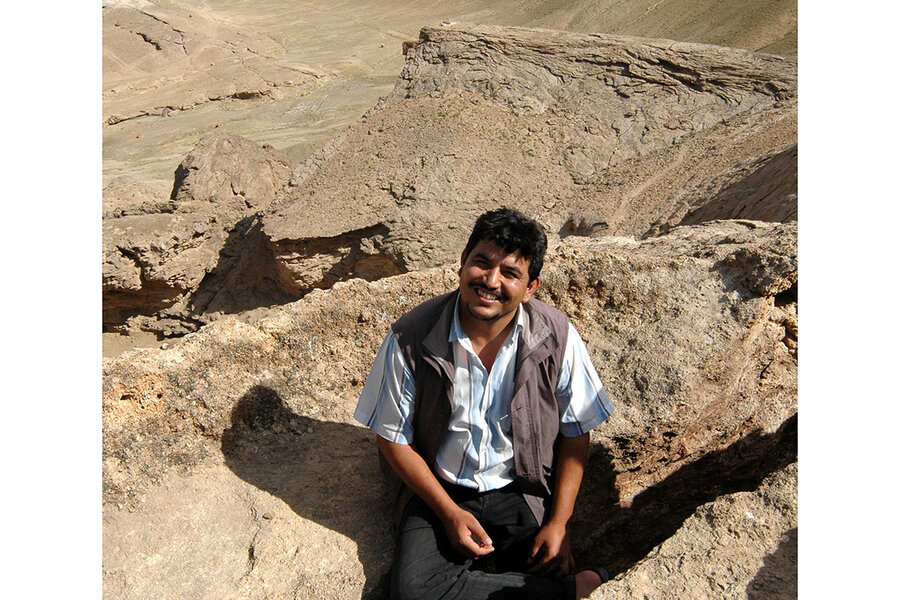For many at the Monitor, Afghanistan is personal
The first time I arrived in Afghanistan several years into the United States’ 20-year war, I was scared. Then I met Farouq Samim, and the only thought I had was of coming back again. Farouq was my interpreter and guide, so well known by locals that a colleague dubbed him the “mayor of Kabul.” But most of all, he was my friend.
Today, Farouq lives in Ottawa, Ontario, and he is still reaching out a hand to those who are scared. This time, however, they are his fellow Afghans, and he is trying to get them out.
The Monitor has long had close ties with Afghanistan – reporters taken with its beauty and the hospitality that so rarely makes global news. It means we know many Farouqs. Like me, each of our reporters has been kept safe and cared for by drivers who encouraged us to take a dip in one of Jalalabad’s rivers on a hot summer day, or interpreters who knew which market had the best melons.
For many at the Monitor, the past few weeks in Afghanistan have been personal. We’re working with Farouq and others to try to save those left behind. Among the former colleagues who have reached out to Farouq, some have no documents. Others (according to Afghan tradition) have no last names. Navigating American bureaucracy from Ottawa for those still in Afghanistan is no easy task. The rules mean he can’t even get his own extended family out. But he wants to help others as much as he can, and his voice breaks as he remembers the Afghans who clung to the bottom of a departing plane in a fatal attempt to flee the Taliban.
“So many friends are helping,” he says. “We need to get people to safety.”
We’ve heard from others, too. Former Monitor staffers and freelancers have collected countless documents and made phone calls at all hours of the day – all to make sure their friends are safe. Former South Asia correspondent Ben Arnoldy has been looking through old photos, finding dates he needs for visa forms as well as memories to make a stronger case for their evacuation.
It’s been strange, he says. When he was writing from Afghanistan a decade ago, he wondered if anyone was reading. “Now, the whole country is focused on this thing.”
Farouq worries about what will happen after the last American officials leave. The temptation might be to think this chapter is over. But it would not be for thousands of everyday Afghans who supported the West, and who are being left behind as America focuses on evacuating citizens and visa holders.
“No matter if you worked as a military interpreter or with the government or with the Western media,” Farouq writes me in an email. For a Taliban who does not know the difference, “All can equally put someone in grave danger.”
He hopes some sense of American responsibility extends beyond the end of the war, to ensure these Afghans are safe. “These western governments can help a lot,” he says.
To better understand what has happened in Afghanistan, we’re focusing all our Humanity Behind the Headlines stories our Sept. 6 issue of the Weekly magazine on the topic. The stories are a culmination of our long investment in the region, sharing a deeper insight that goes beyond frantic hot takes, and are anchored in the country’s enduring humanity. The Monitor’s full coverage can be found here.







